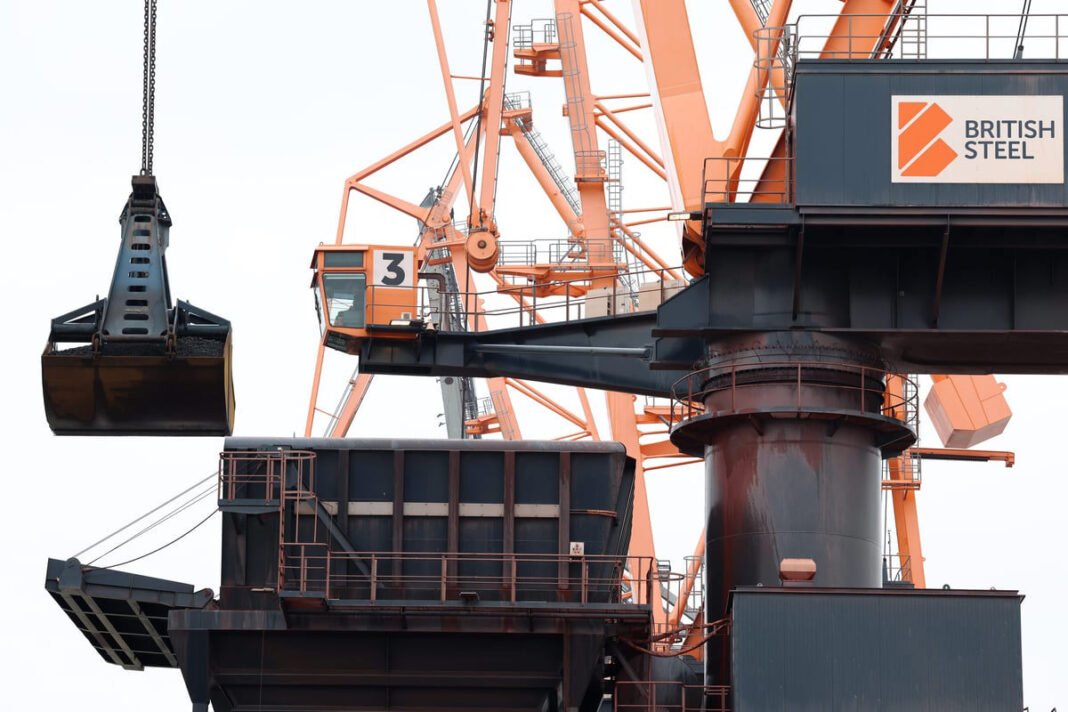A cargo ship carrying over 50,000 tonnes of coking coal from Australia is due to dock at Immingham next weekend. Under normal circumstances, this would hardly raise an eyebrow. But this arrival marks the climax of a dramatic intervention by the UK government to keep the country’s last blast furnaces running.
Parliament was urgently recalled from its Easter recess to pass emergency legislation granting the government control over British Steel, the operator of the UK’s final two blast furnaces capable of producing virgin steel from coke and iron ore. Keir Starmer, deeply involved in the unfolding crisis, requested hourly updates during his engagements after talks with British Steel’s Chinese owner, Jingye Group, collapsed.
In the early hours of Friday, Starmer was informed that ownership of the coal on the Navios Alegria had been transferred from British Steel to Jingye. This raised alarm bells — it appeared the company was attempting to sell off the coal required to keep the Scunthorpe blast furnaces operational. Union leaders claimed that Jingye had already turned away a second ship, the Amstel Tiger, which had been transporting coking coal from the US.
On Friday morning, the prime minister convened a cabinet meeting, with a follow-up session scheduled for midday. Concern was growing that workers might be caught between government orders and Jingye’s directives. The attorney general, Richard Hermer, was asked to explore legal protections for workers who might defy company leadership. Starmer also resolved to return to Scunthorpe personally and support efforts on the ground.
One of the government’s top priorities was securing the cargo from the Navios Alegria. Officials suspected the transfer of ownership was unlawful. While lawyers worked to confirm this, aides prepared a contingency plan to reroute the vessel—then near Liberia and en route to refuel in Spain—to Gibraltar. The idea was that if it docked at a British port, the UK could legally seize the coal. This operation was internally dubbed “Steelback,” referencing a historic British regiment honored during the 1779 siege of Gibraltar.
Simultaneously, backup plans were drawn up to source coal from other traders and steelmakers, including Tata Steel. But time was tight, and one senior source admitted that traders warned they couldn’t deliver shipments fast enough. Anxiety was running high as officials waited for any resolution regarding the cargo onboard Navios Alegria.
A turning point came Saturday afternoon. Legal experts determined that the individual who signed over the cargo didn’t have the proper authority. This meant the coal legally still belonged to British Steel—soon to be under government control. The news reached Starmer while he was in Scunthorpe. By 6 p.m., the emergency bill had received royal assent, giving ministers full authority over British Steel.
The crisis had been building for over a week after negotiations with Jingye broke down. The company rejected a £500 million offer intended to keep operations going. Government officials came to believe that Jingye was intent on shutting the furnaces down, no matter what. Some in Whitehall saw it as a geopolitical move, suggesting Beijing’s strategic interests included turning the UK into a dumping ground for surplus Chinese steel—especially in light of escalating tariffs from Washington.
“There was a moment when it was clear they were trying to dismantle our steel production,” one senior figure commented. Another added that the Chinese parent company likely saw an opportunity to benefit from oversupplying global markets. Jingye, for its part, has insisted the plant is financially unsustainable, reporting losses of £700,000 per day.
On Tuesday, the coal and iron ore shipments from the US finally arrived in Immingham, following payment by the UK government. With new supplies in place, the blast furnaces can continue operating—at least for now.
Officials in Downing Street say they took drastic steps because domestic steelmaking is increasingly seen as a matter of national security, especially amid global trade tensions and a growing push for European rearmament. The situation has sparked calls to reclassify steel as part of the UK’s critical national infrastructure. Currently, it is not officially designated as such.
However, the long-term future of the Scunthorpe plant remains uncertain. The two remaining blast furnaces are nearing the end of their operational lives. The government’s proposed shift to cleaner electric arc furnaces would mean moving away from virgin steel production, instead relying on recycled scrap metal.
A new steel strategy is expected within weeks. It will address whether the UK should continue producing steel from raw materials. In the meantime, the government is actively seeking private investment to avoid full nationalisation of British Steel—something the Conservative government had previously resisted when Jingye emerged as the sole bidder in 2019.
If no alternative investors come forward this year, ministers may face tough questions over the cost of keeping the UK’s steel industry afloat.
Stay tuned to London Pulse News for more updates.


